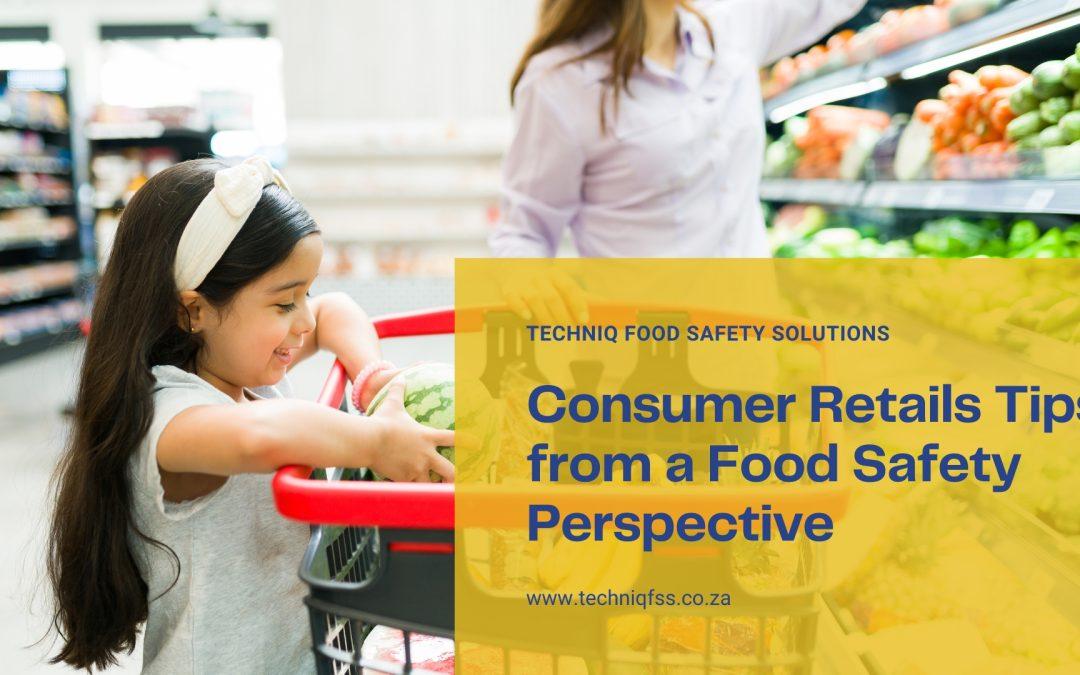With the current economic climate, at some point we all start to feel the pinch. As a consumer, it’s essential to make informed decisions when purchasing food products, not only based on value perception but also, to ensure both you and your family’s safety. Whether shopping at a local supermarket, fruit and veg trader, or online, there are several things you can do to protect yourself from foodborne illnesses.
In this blog, we’ll discuss some consumer retail tips from a food safety perspective.
Check the expiration date:
Always check the expiration date of any perishable items you purchase. These are applicable to all products but especially higher risk items that includes dairy, meat, poultry, pre- packaged ready to eat foods. If a product is past its expiration date, it could be unsafe to consume, and you should avoid purchasing it. Make a small difference by informing the retailer of the expired item, so it can be removed from shelf.Stock rotation is built into food safety practices, but human error may creep in from time to time.
Read the label:
Take the time to read the label on food products to ensure they are safe for consumption. Look for information on potential allergens, sodium content or sugar type, cooking instructions, and storage requirements.
Something creamy:
Who doesn’t enjoy a cream filled doughnut or decadent éclair? Check product label or with the bakery if cream or imitation cream is being used. If you are allergic to cow’s milk, this may help in a big way.
Make sense of it:
Use your abilities to detect a product that may be off by checking for physical deterioration or discoloration of products. For cold chain products i.e requiring refrigeration (e.g. dairy products, polony, viennas, chicken etc., ensure that items are indeed cold upon feel and check the gauge reading on the refrigeration unit..
Think safe food:
We all love ready-to-eat meals, it’s quick, convenient and saves a lot of time. If served at deli counters check if the holding temperature of hot food is 60C or above. Anything lower is considered the danger zone and might result in a few trips to the loo, or worse!
Choose reputable brands:
Stick with reputable brands that have a history of producing safe and high-quality food products. Research the brand’s reputation before making a purchase, and check online reviews from other consumers.
Shop at trusted retailers:
Shop at retailers with a good reputation for selling high-quality, safe products. Look for retailers that follow proper food safety protocols and have a clean and well-maintained store.
Check for tampering:
Before purchasing a product, check for any signs of tampering. If a package is open or damaged, do not purchase the product. If you notice any signs of tampering after purchase, contact the retailer immediately.
Proper storage:
Once you’ve purchased your food products, it’s essential to store them properly to prevent spoilage and the growth of harmful bacteria. Follow the storage instructions provided on the label or by the retailer, and be sure to refrigerate perishable items promptly.
By following these consumer retail tips, you can make informed decisions and protect yourself and your family from foodborne illness.

